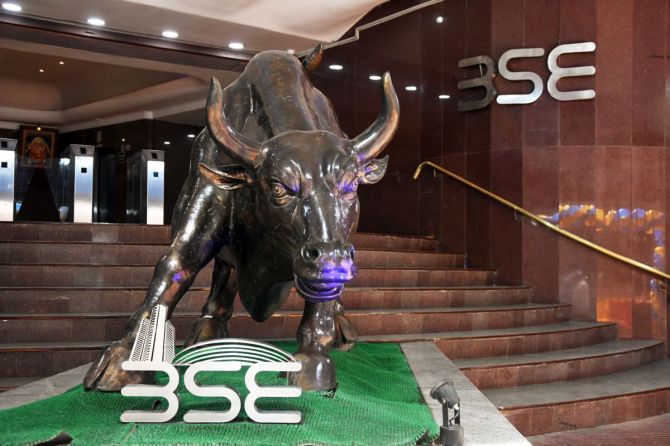
Introduction
In the rapidly evolving landscape of international trade, where transactions occur across borders and between numerous parties, the need for transparency, security, and efficiency has never been greater. Traditional trade finance processes often involve a labyrinth of paperwork, intermediaries, and delays, leading to increased costs and risks for all parties involved. However, the emergence of custom blockchain development services technology has paved the way for innovative solutions that promise to revolutionize trade finance.
At the forefront of this transformation are custom blockchain development services, offering tailored solutions to meet the specific needs of businesses operating in the trade finance ecosystem. By harnessing the power of blockchain technology, these services aim to streamline processes, reduce fraud, and enhance trust among counterparties. In this blog, we will delve into the role of custom blockchain solutions in shaping the future of trade finance and explore their potential impact on the industry.
Understanding Blockchain in Trade Finance
Before we delve into the intricacies of custom blockchain solutions, let us first establish a foundational understanding of blockchain technology and its relevance in trade finance.
Blockchain, often described as a distributed ledger technology, is essentially a decentralized database that records transactions across multiple computers in a way that ensures transparency, immutability, and security. Each transaction, or “block,” is cryptographically linked to the previous one, creating a chain of blocks that cannot be altered retroactively without the consensus of the network participants.
In the context of trade finance, blockchain holds immense promise for transforming outdated and inefficient processes. By digitizing and automating various aspects of trade finance, blockchain solutions can streamline documentation, facilitate real-time tracking of goods and payments, and mitigate the risk of fraud and errors.
However, implementing blockchain in trade finance requires more than just adopting off-the-shelf solutions. Every business operates differently, with unique requirements and challenges. This is where custom blockchain development services come into play.
Custom Blockchain Development Services: Tailored Solutions for Trade Finance
Custom blockchain development services offer businesses the flexibility to design and deploy blockchain solutions that are specifically tailored to their needs. Whether it’s optimizing supply chain management, automating trade documentation, or enhancing transparency in transactions, these services provide a range of benefits for participants in the trade finance ecosystem.
-
Streamlining Trade Documentation
One of the most significant pain points in trade finance is the cumbersome and time-consuming process of managing trade documentation. From letters of credit to bills of lading, the sheer volume of paperwork involved can lead to delays, errors, and disputes.
Custom blockchain solutions can streamline this process by digitizing and automating the creation, verification, and sharing of trade documents. By storing documents on a decentralized blockchain network, participants can access real-time updates, verify the authenticity of documents, and track the status of shipments and payments more efficiently.
-
Enhancing Supply Chain Transparency
Supply chain visibility is crucial for ensuring the integrity and authenticity of goods throughout the trade finance process. However, traditional supply chain systems often lack transparency, making it difficult to trace the origin of products, monitor their movement, and verify their authenticity.
Custom blockchain solutions can address this challenge by providing a transparent and immutable record of every transaction and movement within the supply chain. By recording each step of the journey on the blockchain, from production to delivery, businesses can gain unprecedented visibility into their supply chains, identify bottlenecks, and detect anomalies or discrepancies in real-time.
-
Mitigating Fraud and Counterfeit Goods
Fraud and counterfeit goods pose significant risks to businesses engaged in international trade. From forged documents to counterfeit products, the prevalence of fraudulent activities can undermine trust and confidence among trading partners.
Custom blockchain solutions offer a robust mechanism for mitigating fraud and counterfeit goods by creating a tamper-proof record of transactions and assets. By leveraging cryptographic signatures and smart contracts, businesses can verify the authenticity of products, track their provenance, and ensure compliance with regulatory requirements.
-
Improving Access to Finance
Access to finance is a critical enabler of trade, particularly for small and medium-sized enterprises (SMEs) that often struggle to obtain credit from traditional financial institutions. However, the lack of transparency and collateral in trade finance transactions can make it challenging for SMEs to access the funding they need to grow their businesses.
Custom blockchain solutions can address this issue by providing a transparent and auditable record of trade transactions, assets, and creditworthiness. By digitizing trade finance processes and leveraging blockchain-based identity verification systems, SMEs can access alternative sources of financing, such as peer-to-peer lending platforms and supply chain finance programs.
Case Studies: Real-World Applications of Custom Blockchain Solutions in Trade Finance
To illustrate the potential impact of custom blockchain solutions on trade finance, let us explore some real-world case studies where businesses have successfully implemented blockchain technology to address specific challenges and improve efficiency in trade finance processes.
-
TradeLens: A Blockchain Platform for Global Trade
Developed by IBM and Maersk, TradeLens is a blockchain-based platform designed to streamline global trade operations. It enhance supply chain visibility, and reduce paperwork. By digitizing trade documentation and automating data sharing among supply chain participants, TradeLens enables real-time tracking of shipments, faster customs clearance, and reduced administrative costs.
-
we.trade: A Blockchain Platform for SME Financing
we.trade is a blockchain-based platform that facilitates cross-border trade and financing for SMEs in Europe. Developed by a consortium of major European banks, including HSBC, Santander, and Deutsche Bank, we.trade enables SMEs to access trade finance solutions, such as letters of credit and invoice financing, more efficiently and transparently.
-
Komgo: A Blockchain Platform for Commodity Trade Finance
Komgo is a blockchain-based platform that digitizes and streamlines commodity trade finance processes, including the issuance and management of letters of credit, invoices, and bills of lading. By providing a secure and transparent network for commodity traders, banks, and other stakeholders, Komgo aims to reduce the risk of fraud, improve operational efficiency, and enhance trust in commodity trading.
The Future of Trade Finance: Unlocking the Potential of Custom Blockchain Solutions
As we look ahead to the future of trade finance, it is clear that custom blockchain solutions will play a pivotal role in shaping the industry’s evolution. By offering tailored solutions that address the specific needs and challenges of businesses engaged in international trade. Custom blockchain development services have the potential to revolutionize trade finance processes, enhance transparency and trust, and unlock new opportunities for economic growth and development.
However, realizing this vision will require collaboration and cooperation among stakeholders across the trade finance ecosystem, including businesses, governments, financial institutions, and technology providers. By working together to overcome technical, regulatory, and cultural barriers, we can harness the full potential of blockchain technology. To build a more transparent, efficient, and inclusive trade finance ecosystem for the benefit of all.
Conclusion
In conclusion, custom blockchain solutions hold immense promise for transforming trade finance and driving innovation in the global economy. By leveraging the power of blockchain technology to streamline processes, reduce fraud, and enhance transparency, businesses can unlock new opportunities for growth and competitiveness in the increasingly interconnected world of international trade. As we continue to explore the potential of blockchain in trade finance, one thing is clear. The future of trade finance is digital, decentralized, and driven by innovation.




